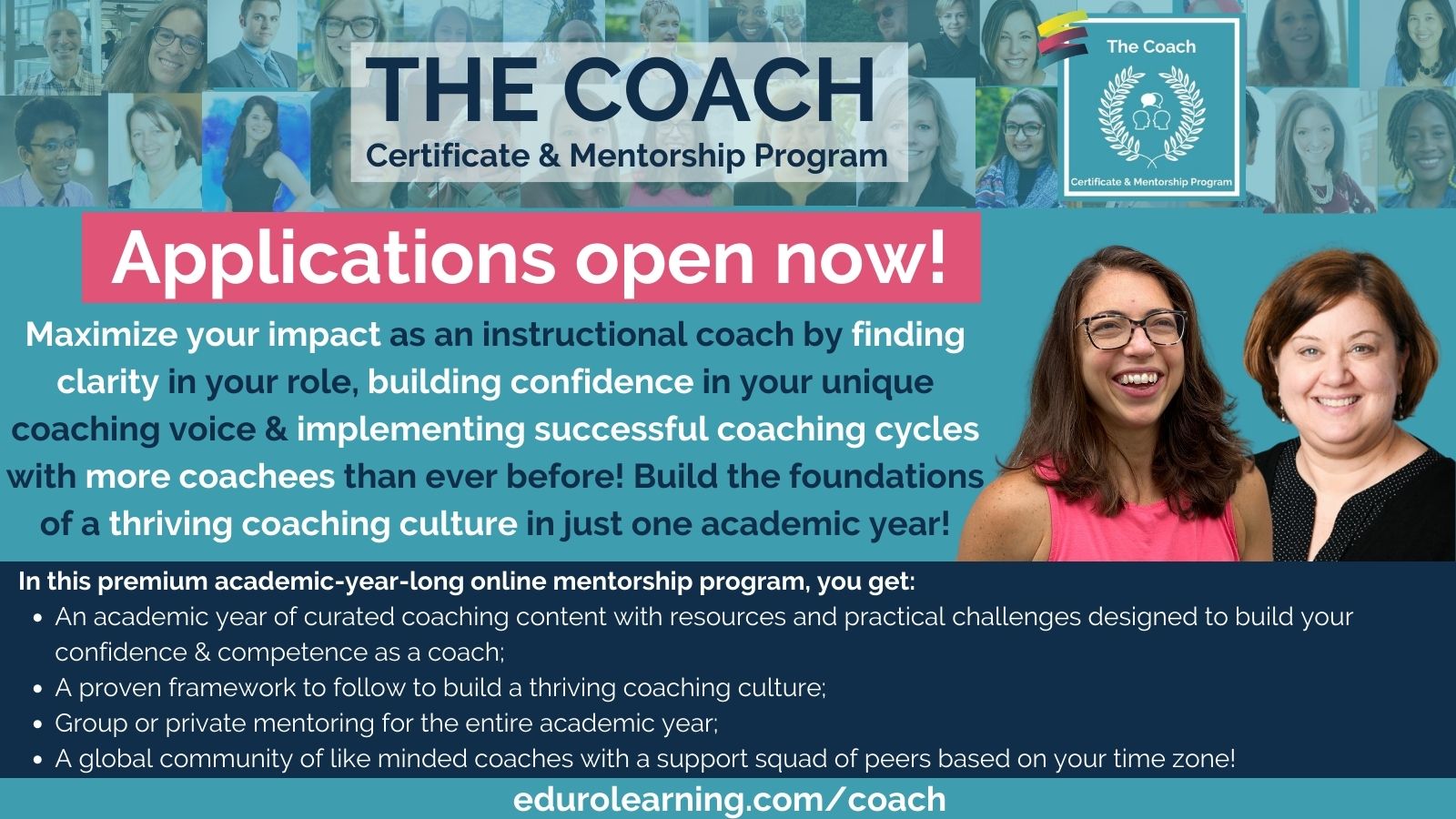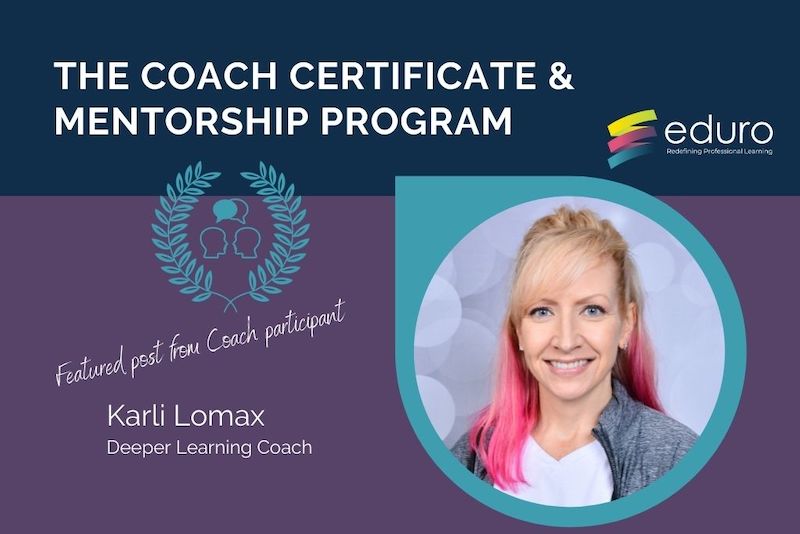We want to give you a peek inside our Coach Certificate & Mentorship Program. Coaches taking part in this academic-year-long journey have graciously given us permission to post some of their learning and reflections from the private coursework they are undertaking during this program. Where possible, we have shared the course and the action task to give context for the guest post.
The Topic: Coaching Conversations
The Task: If you have had experience with all of the coaching stances, reflect on the process you go through in deciding which one to use.
What clues does the teacher give you in order to help you select the appropriate stance?
Both listening to the teacher and being familiar with their prior knowledge and experience have helped me. I was coaching someone who I knew had a lot of knowledge and confidence in a topic related to their goal, so I took a more collaborative stance and helped this person collect and analyze data. In our conversations, this person was pretty confident in their language and pretty quickly made decisions about a plan of action. Another coachee that I was recently working with was more pensive and reflective during our initial conversations so I realized that she was struggling to clarify her ideas a bit. For example, she would pose an idea and then a minute later, change her mind (and she did that quite a few times). I chose to take more of a consultant stance by providing her with some direction in using certain resources. From there, she was able to and wanted to take on the planning, but we also did a bit of co-teaching. I think I did a fairly good job in balancing a consultant and collaborative approach because I wanted to make sure that she really felt ownership over what she/we were doing. In sum, I think it’s important to “listen to” what the coachee is saying, but also how they are saying it (reading their tone, body language, etc.)
How do you know you’ve chosen the right stance at the right time?
I just try to get a sense of how the coachee is feeling, their verbal response as well as their body language. They will usually confirm or disagree once I paraphrase or even in how they respond to my next question, Knowing that I have chosen the right stance happens in live time and is constantly changing during the course of the conversation, or as much as I am shifting, I think in the future I will try to make a point to ask them directly and/or say that I am using a certain stance just to be clear.
What strategies or skills do you use in each stance?
I think it’s really important to listen when using any stance because you need to identify where the teacher is and how you can meet their needs at that moment. I also think paraphrasing and asking questions to confirm that you are on the right track is also key.
What do you do to help your teaching colleague understand which stance you’re using and why?
Before watching the video for this lesson, I didn’t really do anything to communicate what role I was using, lol. Now I feel a lot more confident to directly ask them what they need as well as tell them which approach I am using and why.
Read more from The Coach participants as they share their learning from the certificate & mentorship program…
Debra’s post: Essential Skills for Coaches
Kate’s post: Seeing Yourself as a Leader
Andre’s post: How to Have a Coaching Conversation
Becca’s post: Defining the Role of the Coach
Level Up Your Coaching with The Coach!
If you are ready to dive deep into your coaching practice, to help you #coachbetter and build a thriving coaching culture in your school, please join us for our next cohort of The Coach!
Wherever you are in building a coaching culture in your school, The Coach will give you the strategies, skills and tools you need to make coaching a success and will empower you to confidently apply instructional coaching strategies in any situation – from building a coaching program, to having coaching conversations, to being a leader in your school community. We facilitate only one cohort each academic year so we can offer individualized support for each participant.
Coaches of all levels are welcome: you’ll start the program with a self-assessment to determine exactly what the next steps are for you!


Recent Comments